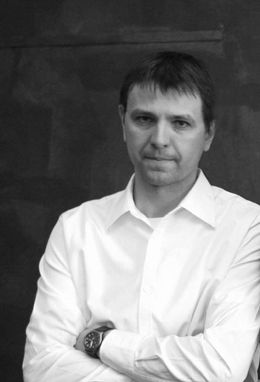 |
—— A year that marked the beginning of the independence of the Czech and Slovak Republics after their separation – a reality that most people could hardly imagine before, a significant historical event in our history that occurred relatively quickly and peacefully, a state that we now perceive as self-evident and natural.
At that time, I sensed the differing moods of people – on one hand, great euphoria and high expectations in Slovakia, on the other hand, confusion and a bit of regret from the severed bond in the Czech Republic.
My generation found itself in a situation that was entirely new, different from those before it and those to come. We graduated and started working. The old system fell apart, and the new one was just emerging. We could not count on someone taking care of us; there were no longer newlywed loans, and bank loans and mortgages were not yet common; we had to take care of ourselves in some way. Borders opened to us and the possibilities of free entrepreneurship; we had no idea what pitfalls this would also bring, how much success we could achieve.
Do you remember which architectural question you considered important at that time, or what question your thesis posed to you?
—— Thanks to the social changes after 1989, new people came to teach at the school, including experienced architects from newly established private architectural studios. We had the opportunity to work in them during our studies (now a common/mandatory practice) on real large projects. Primarily, it was a step into the real world with real clients, officials, construction, and real problems.
Among other things, I recall the situation during the defense of the thesis when there was a clash of opinions between the "new" and "old" educators regarding the evaluation of the student project. The commission included Professor Emil Hlaváček, an expert on industrial buildings, and Martin Kubelík from the Vienna University, a specialist in Renaissance architecture. A classmate defended a thesis project for a church, designed in the studio under the direction of architect Vladimír Krátký in a simple minimalist style with a slender rectangular tower; the opponent of the project was architect Michal Sborwitz. For Hlaváček, the very topic of the project was problematic, while Kubelík compared the church to a fire station, resulting in a sharp clash of opinions between the commission and others. The outcome was a poor evaluation of the project, and my classmate nearly failed. Similar situations occurred in other commissions where students from the studios of Šrámek, Lábus, Pleskot, Šika, and others defended their projects. As students on the threshold of starting careers, we perceived it as a kind of continuation or consequence of the post-revolution changes, the rise of a new generation supported by the euphoria of opened possibilities, and as confirmation of the emergence of new styles in our architecture – neofunctionalism, deconstructivism, and minimalism.
Did any of the teachers significantly influence your perspective on the field?
—— I particularly remember architect Václav Dvořák, with whom we, along with other classmates, experienced our first real work in his private studio during school, our first albeit smaller realizations, contact with clients and construction, our first fees. Another significant figure is architect Vladimír Krátký, who led my thesis and subsequently brought me to the studio of Omicron-K Martin Kotík, which represented for me a kind of further step in architectural studies, the world of real large architecture, and I am still grateful for the experiences I gained there.
If you think about the "future" school of architecture, what feature should it carry over from the school you attended?
—— Just based on observations from collaborating with current students or graduates, I miss in them the ability for conceptual creation. I believe that the school should lead students to a greater humility towards the environment in which they create and also focus more on students' ability to lead communication and present their work convincingly.









Redakce archiweb.cz ctí v maximální možné míře svobodu slova, nicméně ve výjimečných případech si vyhrazuje právo smazat nebo opatřit komentářem příspěvek, který se netýká tématu diskuse, porušuje platné zákony ČR nebo dobré jméno portálu, obsahuje vulgarismy nebo má reklamní charakter.